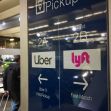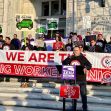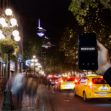Last week, the California Supreme Court upheld proposition 22, a measure approved by voters in 2020, allowing companies who provide app-based services like Uber and Lyft to classify their drivers as independent contractors rather than employees. This decision marks a significant victory for the gig economy and the tech giants operating within it, concluding a lengthy legal battle that pitted labor unions against some of the most influential companies in the industry.
Proposition 22 was introduced to counteract Assembly Bill 5 (AB5), a 2019 law that redefined the criteria for classifying workers as employees versus independent contractors. Under AB5, companies were required to provide employees with benefits such as minimum wage, overtime pay, health insurance, and reimbursements for expenses. This legislation posed a substantial financial burden on app-based companies, whose business models rely heavily on the flexibility and lower costs associated with hiring independent contractors.
As reported by ABC News, Uber, Lyft, and other companies spent over $200 million on a campaign supporting Prop 22, which proposed an alternative classification for gig workers to circumvent AB5. This classification would grant some benefits, such as a guaranteed minimum wage and health insurance subsidies for drivers working more than 25 hours a week, while maintaining their status as independent contractors.
The Service Employees International Union (SEIU) and several drivers challenged Prop 22, arguing that it was unconstitutional because it limited the legislature's authority to regulate workers' compensation programs. A lower court initially sided with the plaintiffs, deeming the measure illegal. However, this decision was reversed by an appellate court, which the California Supreme Court has now affirmed.
In their ruling, the justices emphasized that Prop 22 does not infringe upon the legislature's power and that the measure was a legitimate exercise of the voters' initiative rights. This decision ensures that app-based companies can continue operating without the substantial cost increases that would result from reclassifying drivers as employees.
In a statement, Uber lauded the ruling as a validation of the nearly 10 million Californians who voted for Prop 22, asserting that the decision upholds drivers' freedom to choose their working hours and conditions, a core aspect of the gig economy's appeal.






